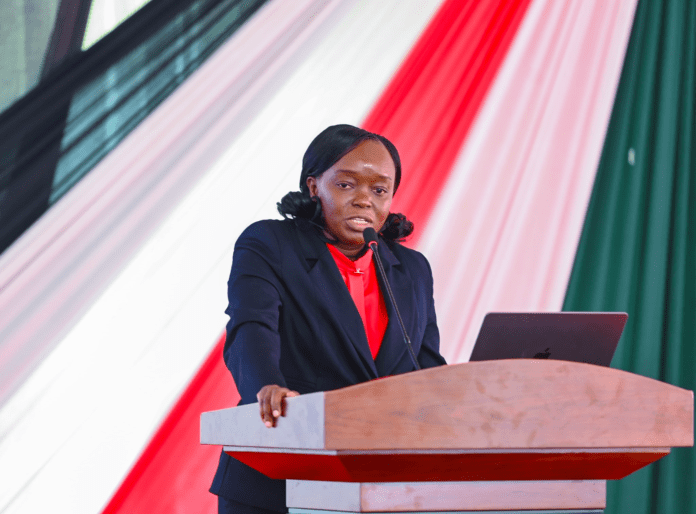
Kenya is facing a potential public health crisis, with nearly 60,000 new HIV infections projected by 2030, following the withdrawal of donor support from the United States Agency for International Development (USAID).
The funding freeze has created a Sh30.9 billion annual gap, raising concerns about the future of critical healthcare programs, particularly those addressing HIV, tuberculosis (TB), and malaria.
The Ministry of Health and the Council of Governors have warned that without these funds, the country’s ability to provide essential health services will be severely affected.
Health officials estimate that Sh12.26 billion will be lost each year for essential health products and technologies, significantly impacting treatment and prevention efforts.
Speaking on Monday, Health Cabinet Secretary Dr. Deborah Barasa cautioned that the loss of funding could reverse progress made in the fight against HIV/AIDS.
Kenya currently ranks seventh globally in HIV burden but has made remarkable strides towards achieving the UNAIDS 95-95-95 targets—which aim to ensure that 95 per cent of people living with HIV know their status, 95 per cent receive antiretroviral therapy, and 95 per cent achieve viral suppression.
By the end of last year, Kenya had surpassed these goals, reaching 96-98-97, indicating that a vast majority of individuals living with HIV were on treatment and achieving viral suppression. However, with USAID’s withdrawal, these gains are now under threat.
The tuberculosis burden is also expected to rise significantly due to the funding gap. The Ministry of Health has projected that 23,000 deaths could occur annually, particularly among individuals living with HIV who are more vulnerable to TB.
While no specific figures have been provided for malaria, Dr. Barasa warned that climate change, combined with the loss of donor funds, could worsen the situation, making disease control efforts more difficult.
Beyond disease-specific programs, the funding freeze has had a severe impact on healthcare staffing, leading to the immediate loss of 11,058 frontline workers. In total, more than 40,000 health professionals could be affected, further straining Kenya’s already overstretched health system.
Other critical areas facing disruption include family planning, immunization, nutrition, vaccines, laboratory services, and oxygen supply. The Sh11.6 billion support for immunization programs from Gavi, the Vaccine Alliance, and the US government is also at risk, putting millions of children in danger of missing life-saving vaccines.
In response, Dr. Barasa has recommended mobilizing at least Sh2 billion locally to complement the Sh2.5 billion allocated by Gavi to sustain immunization efforts. Additionally, the government will need to allocate Sh1.74 billion for family planning in the 2025-2026 financial year to prevent disruptions in reproductive health services.
The loss of USAID support is part of a broader funding crisis, as other multilateral donors are also scaling back contributions, potentially creating an additional Sh17 billion deficit. One of the most immediate concerns is the Sh2.8 billion in support from the World Bank for Kenya’s blood transfusion program, which is set to end next month. With no alternative funding sources secured, the sustainability of the program remains uncertain.
To address these challenges, the government has initiated diplomatic discussions and is engaging the acting US ambassador to explore possible solutions. A formal impact assessment is also being developed to present to development partners in a bid to secure alternative funding.
Additionally, county governments have been urged to retain healthcare workers and integrate donor-funded programs into the national health system to ensure continuity. As part of this transition, the government is restructuring human resource management in the health sector through the newly introduced Taifa Care initiative, encouraging counties to allocate funds to mitigate the impact of donor withdrawals.
Meanwhile, the US government has already begun terminating contracts and grants to Kenyan non-governmental organizations that previously benefited from USAID funding, further exacerbating concerns about service delivery in the health sector.
With Kenya now at a critical juncture, health experts warn that unless swift action is taken, the country could face severe setbacks in disease control, healthcare staffing, and overall public health services.






